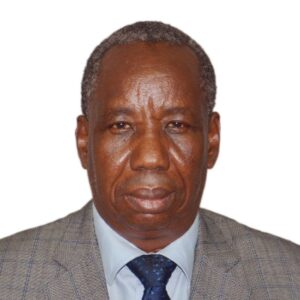- Home
- Staying Connected
- GFF K&L Shares
- GFF Liaison Officer Post
December 9, 2021
|
10:17 AM
Development of the Investment Case in Mali : An Obstacle Course
 By Mamadou Namory TRAORE, GFF Liaison Officer, Mali
By Mamadou Namory TRAORE, GFF Liaison Officer, Mali
An uncertain context
Mali joined the Global Financing Facility (GFF) in June 2018 and launched its Investment Case development process in March 2019. This was done in a context where the development of the fourth phase of the Socio-Health Development Program (PRODESS IV) was interrupted for various reasons – the most important of which were the low priority given to the process and the lack of financial resources provided to support the process. Nevertheless, some stakeholders (and not minor ones!) were keen on resuming the PRODESS IV development process.
The institutional change that took place over the following months almost shut down the Investment Case development process as the PRODESS IV and the IC did not feature prominently on the agenda of the new leadership at the Ministry of Health.
The institutional and political crisis disrupted cooperation with some technical and financial partners and, more importantly, led to the interruption of all World Bank disbursements for several months.
The Ministry also experienced two leadership changes, which included a change in GFF Government Focal Point.
The COVID-19 pandemic also contributed to delays, notably preventing consultants from running important workshops.
Evolving implementation strategies
The first strategy implemented consisted of combining the preparation of the PRODESS IV and the Investment Case to obtain the support of all stakeholders.
It was thus necessary to move from a “Roadmap for the development of the Investment Case” to a “Combined roadmap for the development of the PRODESS IV of the RMNCAH-NUT Strategic Plan and the RMNCAH-N Investment Case”. An attempt was made to develop a Strategic Plan for Reproductive Health (with the support of one specific partner) that is separate from the Investment Case.
Despite everything, institutional logics continued to prevail as the two documents relating to the same subject continued to be developed – given they were piloted by two separate Directorates of the Ministry.
The second strategy focused on clarifying this at the decision-making level so that a clear instruction could be provided to both directorates to coordinate their efforts.
The third strategy implemented focused on aspects that were common to both the PRODESS IV and the Investment Case, in particular the development of a common monitoring framework and results frameworks. This contributed to the development of the PRODESS IV as well as to that of its performance framework which has been updated to meet the monitoring needs of the Investment Case.
During these exercises, the resources mobilized by the GFF Secretariat (technical assistance) were used for both the PRODESS IV and the Investment Case, since they were joint.
Efforts were made to stay the course by using a participatory approach and efficiently using available technical resources. Indeed, when s possible (before March 2020), managers were engaged in participatory face-to-face exercises. After March 2020, workshops and online meetings had to be held, including with consultants.
In addition, the goal was to comply with the institutional mechanism for steering and monitoring the implementation of the PRODESS IV. This is how the two documents were adopted during an extraordinary session of the PRODESS Monitoring Committee, which also acts as a political platform for the GFF.
Finally, the Investment Case was solemnly approved by the Ministry of Health and Social Development and the Ministry for the Promotion of Women, Children, and the Family, and presented to technical and financial partners during their monthly meeting in October 2021. This helped mitigate resistance to the adoption of this document as Mali’s priority program and will undoubtedly contribute to the alignment of Partners with the IC.
The development of the Investment Case was not a smooth process. The obstacles were not always rational and objective. But we had to deal with it. The changes in the Ministry’s leadership have not helped maintain the commitment Mali made by joining the GFF in June 2018. Nevertheless, the Investment Case for the improvement of reproductive, maternal, newborn, child and adolescent health and nutrition for 2020-2023 was adopted by the Government as a priority programme. The Government now contributes domestic resources to the Investment Case and requires technical and financial partners to align to it.
